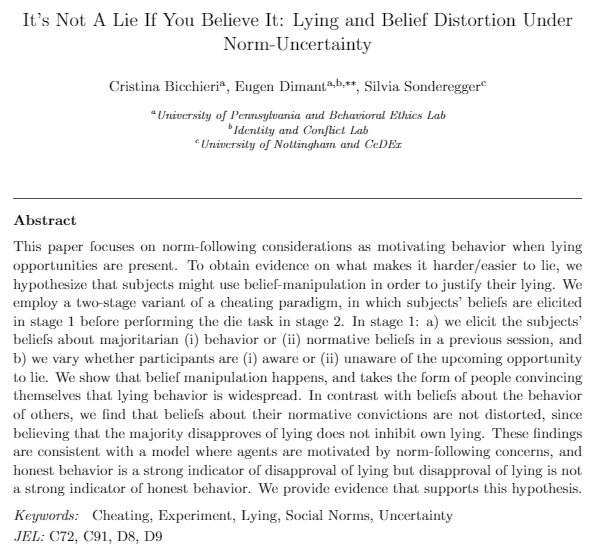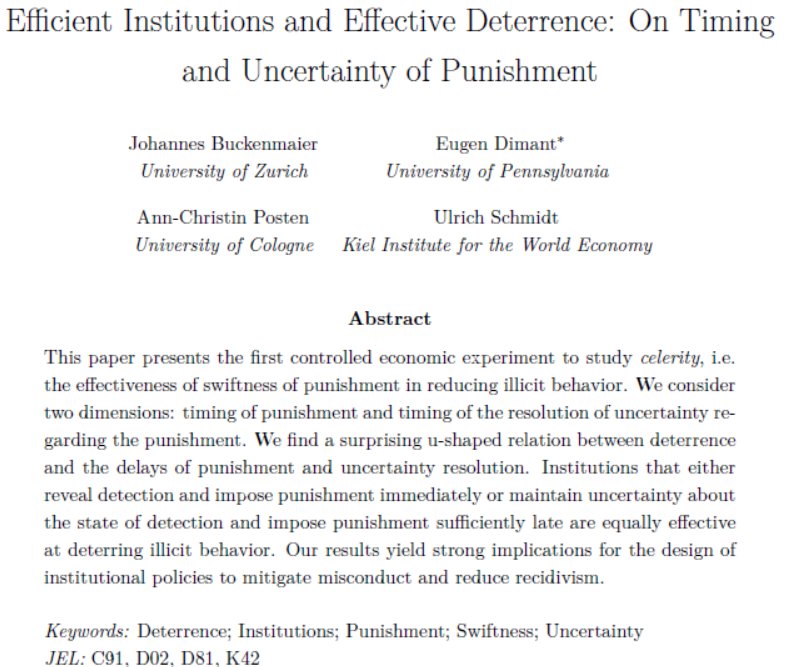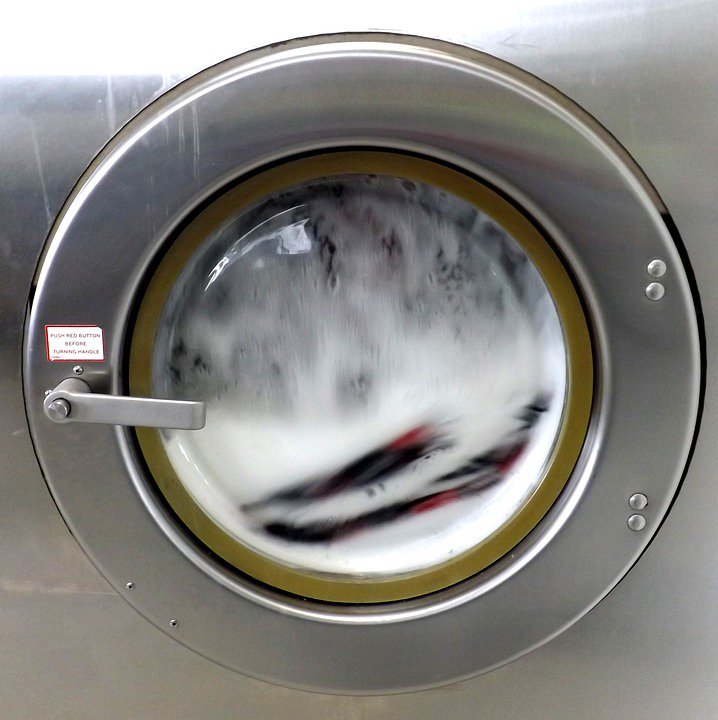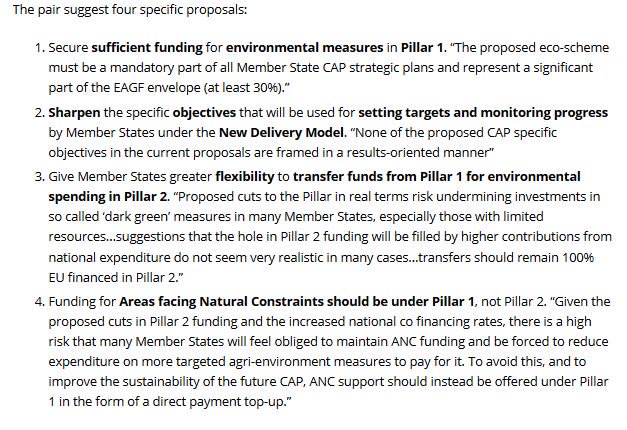w/ @cbicchieri (@Penn) & Sonderegger (@CeDEx)
RQ: how do we engage in deviant behavior when social #norms are uncertain?
A: self-serving belief distortion
Paper: bit.ly/2Go0tJk
Thread ⬇

Known:
◈ #Lies are ubiquitous & people often lie for their own benefit or for others (@UriGneezy et al., 2018 AER, Abeler et al., 2019 Ecta)
◈ Reasons (not) to lie: ethical dissonance, image concerns...
--> we take a complementary approach: norm-following considerations
Existing scientific approach to the study of norms:
◈ Clearly define norms and study how individuals react (tradition of @RobertCialdini, @CBicchieri, Fehr & others)
◈ Find: social norms motivate and affect personal decisions, even when they are not in our own self-interest
Reality:
◈ Inherent uncertainty wrt to the application or interpretation of norms (think of fairness
Dilemma:
◈ inherent uncertainties facilitate “choosing what to believe” (motivated reasoning) & form beliefs based on previous experiences or shared cultural narratives
Questions that we address with theory & series of experiments:
◈ when and how do individuals engage in self-serving belief distortion as a justification for lying?
◈ How is this mechanism affected by variations in the uncertainty about the state of the world wrt norms?
◈ The theoretical foundation based on the plethora of work by Benabou + Tirole and grounded in social norms theory of @CBicchieri (see earlier tweet)
◈ Basic idea: derive motivation for belief distortion for various 'types' of (un)conditional liars
◈ Theory allows us to derive testable hypotheses wrt to who distorts which beliefs & when -> helps us to derive a model of social image contrasting existing work
◈ Insight: some beliefs are more likely to be manipulated than others based on their role in defining a norm
Paper contains several nuanced results, but main insight:
◈ Belief manipulation happens and takes the form of people convincing themselves that lying behavior is widespread
◈ Individual distort descriptive but not injunctive beliefs --> reason: differential signaling
Why should you care?
Social image model a' la @UriGneezy et al. delivers different predictions to our norm-based model. Intuitively, we predict that conditional agents are more inclined to lie when they believe lying to be common, the social image model yields the opposite







